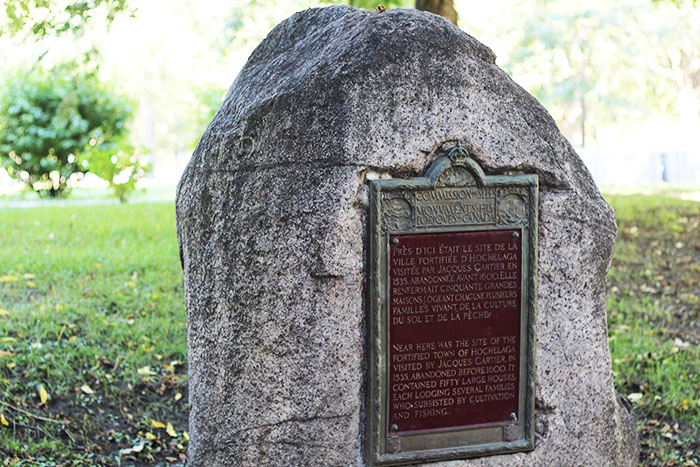On Sept. 12, a notice of seizure was sent to McGill University by Kahentinetha, a kahtihon’tia:kwenio—the aboriginal term for woman title holder—from the Kahnawake Mohawk nation. The letter claims that McGill has fraudulently taken Mohawk land and funds, as well as violated the beliefs of the Kahnawake people.
“We never gave permission for McGill to be on our land,” Kahentinetha said in the notice. “And McGill has never been able to produce anything to show that we gave them permission.”
The letter also called for the settlement of a debt from 1847, where Upper Canada withdrew funds from the Six Nations Trust Fund of Grand River in order to finance a loan to McGill that kept the university from closing. The Trust Fund had been created as a depository for payments from settlers renting Mohawk land.
“There’s no argument about any of the facts that we put out, the money is owed to us,” Kahentinetha said. “It’s been 185 years since that money was taken, and it still has not been paid back.”
Kahentinetha explained that she sent the letter of seizure after discovering Demilitarize McGill’s campaign to end research at McGill which develops military weapons.
“We knew that […Demilitarize] McGill were trying to put a stop to the making of these weapons,” she said.
“So that’s when I decided as a woman title-holder; I seized McGill [….] I have a duty to protect my people, and I carried out my duty.”
This is not the first time McGill was made aware of the debt. Phil Monture, the former director of the Six Nations Land and Resources Office, was one of the people who originally discovered it.
“We’ve known for years now about this debt, but we just want to protect our investments and work out a partnership,” he said. “Let’s move forward instead of this going around and around.”
Andre Costopoulos, dean of students, explained that the issue of the debt was resolved from McGill’s point of view.
“There was an interaction between McGill and Six Nations Grand River, I believe it was in the late ’80s [or] early ’90s,” he said. “McGill […] found that the debt had been repaid to the federal government. As far as I can tell […] the question is settled.”
Neverthless, Costopoulos underscored that McGill is engaged in discussion with Indigenous communities.
“McGill is very very active in building and maintaining relationships with aboriginal partners,” he said. “We have staff in my office, whose full-time job it is to recruit aboriginal students to increase access to university for aboriginal students.”
Costopoulos continued to highlight that in addition to current programs, McGill was developing new resources to support indigenous students during the course of their undergraduate studies.
“Now we’re designing […] Portage McGill, which is a transition to university program for youth who are facing significant barriers to access,” he said. “There’s a lot of stuff happening in the university. There’s an aboriginal affairs working group that I chair. There’s Indigenous awareness week.”
Costopoulos also explained that he had contacted Kahentinetha over the weekend.
“We’re doing a lot, I think, and we’re always open to doing more. We’re always listening to our partners in indigenous communities,” he said.
Leslie Anne St. Amour, U3 Arts, explained that she would like McGill to be more active in discourse about indigenous issues.
“I would like to see McGill make more of an effort to acknowledge the land that they are on, and also maybe doing things that have a bigger impact,” St Amour, an Indigneous Studies minor, said. “[McGill] could take the [Indigenous Studies] minor and turn it into a major, or even expand the minor to include more classes that are [within the] Indigenous Studies [department], of which currently there are only two.”
St. Amour says that the the letter has sparked a conversation among students.
“In an ideal world, yes, Six Nations would be paid back and McGill would make much more of an effort to acknowledge the land that [it is] on,” she said. “Even if that doesn’t happen, it still raises awareness of the issues and it helps to educate people.”
Jessica Dolan, a PhD candidate in Anthropology, hopes that the university will increase its efforts to accommodate indigenous students.
“I would like to see McGill work with the Six Nations Development Corporation and the people here who are so involved in indigenous education to figure out how to properly honour the debt,” Dolan said. “[McGill] could pay back Six Nations or create a scholarship fund for Haudenosaunee students. They have one like that at Syracuse University called the Haudenosaunee Promise.”
Additional reporting by Jenna Stanwood









